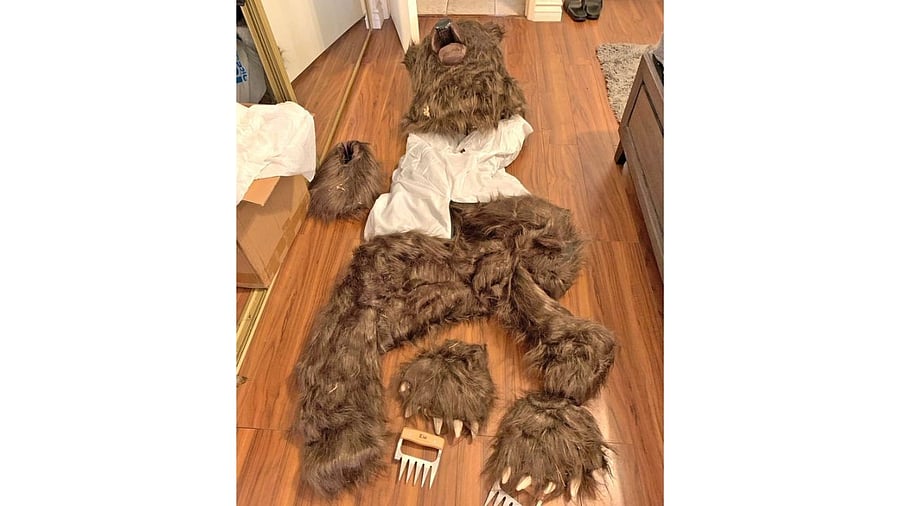
The bear costume used to defraud insurance companies.
Credit: X/@CDInews
A video that was submitted as part of an insurance claim in January appeared to capture a disturbing scene: a brown bear ransacking a Rolls-Royce that was parked in a Southern California driveway.
Similar videos involving other luxury cars were submitted to two additional insurers, and the three companies collectively paid out more than $140,000.
But something about the footage seemed off, and one of the companies reported the video and images of claw marks on the upholstery to the California Department of Insurance. On Wednesday, after concluding an investigation it called Operation Bear Claw, the department said it had determined that the bear was not, in fact, a bear.
“Upon further scrutiny of the video, the investigation determined the bear was actually a person in a bear costume,” the department said in a news release. The scratch marks inside the vehicles, it said, were made with a clawlike kitchen accessory usually used to shred meat.
The California Department of Insurance said Wednesday that four Los Angeles County residents had been arrested. Ruben Tamrazian, 26; Ararat Chirkinian, 39; and Vahe Muradkhanyan, 32, all of Glendale, California; and Alfiya Zuckerman, 39, of Los Angeles, each face charges of insurance fraud and conspiracy, the department said.
A spokesperson for the San Bernardino District Attorney’s Office said in an emailed statement Thursday that the case was under review and that once a filing determination had been made, court dates would be scheduled. It was not immediately clear if the defendants had hired lawyers.
Three of those arrested were still in custody Thursday, authorities said. Zuckerman had been released on a $50,000 bond, according to the San Bernardino County Sheriff’s Office.
The California Department of Insurance said in its news release that the first insurance company “suspected fraud” after it received a claim related to a bear rifling through a 2010 Rolls-Royce Ghost on Jan 28 in Lake Arrowhead, California, a resort area about 80 miles northeast of Los Angeles.
Investigators then found that similar claims had been submitted to the other insurance companies, “with the same date of loss and at the same location,” for interior damage to two other vehicles, both Mercedes-Benzes, the department said. The claims contained remarkably similar videos and photos.
A compilation of nearly identical videos the department released this week shows what appears to be a bear climbing into vehicles after opening a car door.
In the videos, which appear to have been taken by a surveillance camera from an eave overlooking a driveway, the bear appears to swat at the dashboard. Two of the videos show it crawling into the back seat.
Investigators consulted a biologist at the California Department of Fish and Wildlife, who they said confirmed their hunch that they were not dealing with a particularly dexterous bear, but rather “clearly a human in a bear suit.”
The movements of the supposed bear were not convincing, said Tim Daly, a spokesperson for the department, who also said the suit appeared to be “ill fitting.” Nor were the markings and other evidence left behind in the vehicles consistent with those of a bear. “A bear leaves behind a big mess,” he said.
After executing a search warrant, investigators recovered a bear costume in one suspect’s home, the department said. They also found meat-shredding handles, known as meat claws.
This is the first time a fake bear attack has been used to defraud an insurer, according to a spokesperson for the California Department of Insurance, who said investigators have uncovered other “far-fetched schemes” over the years.
Humans have often blamed bears for their crimes.
Just this fall, people sought to frame bears for killings in Tennessee and Montana, according to authorities.